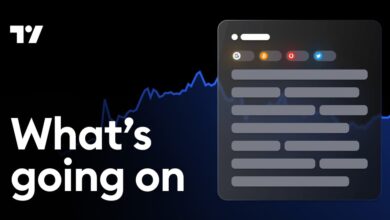Exclusive: David Klotz and Ingmar Mattus discuss launch of retail futures/options broker MetroTrade

FNG Exclusive Interview… FNG last week reported that there’s a new firm named MetroTrade LLC which is now registered in the US with the CFTC as an introducing broker and is also a member of the National Futures Organization (NFA).

MetroTrade is being launched as a new retail futures and options brokerage in the US, by two fairly well-known names in the online trading space – Tickmill co-founder Ingmar Mattus and former Crypto.com COO David Klotz, who will serve as MetroTrade’s President.
How does MetroTrade plan to compete as a new entrant?
Why launch a new broker in the very competitive US market? And why now?
We discuss these and other issues with David and Ingmar, exclusively at FNG.
FNG: Hi David and Ingmar, and thanks for joining us today. Please let us know a little more about MetroTrade, and what it is that you do.
David: MetroTrade is registered as an independent Introducing Broker with the NFA and the CFTC. We plan to offer access to exchange-traded futures to retail customers on an agency-only basis.
We are very keen to apply our years of industry experience to the retail futures space, create a transparent trading environment for our customers, listen to them, and pay it forward as we grow by adding products and services they request.
FNG: Do retail traders trade futures and options today? If not (at least in large numbers), what is going to change? And why?
David: In the US and other jurisdictions that don’t allow CFD access or spread-betting, retail trading in futures, options on futures, and securities options products are very popular, and gaining in popularity. This is evidenced by Robinhood and Webull, two of the most popular app-based trading platforms (Robinhood disclosed 23 million accounts and 10 million active users in 2023), recently deciding to offer futures and options on futures.
FNG: Spot market trading seems to be a simpler activity for retail traders than futures or options – especially options. How do you overcome the education or information gap, to make sure the retail trader understands what he/she is trading and the risks/rewards involved?
David: Education and transparency are key. We plan to offer robust resources to clients to educate them on the products, the platform, the risks, the rewards, and the costs, and ultimately let them decide if trading these markets is right for them. In the US, for customers interested in using risk capital to speculate in the financial markets, exchange-traded futures are relatively cost-effective, given the notional value of the contracts and the margin required to be posted, at least relative to a similar position in an ETF.
FNG: Most of your brokerage ventures (e.g. Tickmill, Armada) have focused outside the US, while MetroTrade is a US based and focused entity. Why the US? And why now?
Ingmar: We have been looking at the US market for some years as this is the biggest financial market in the world. However, being based in Europe, the US always seemed attractive yet distant.
Even when you consider the size of the market there was a little hesitancy. It was always easier to build businesses closer to home. However, with the introduction of micro futures a lot changed and retail futures market started to see healthy growth. I believe we started looking at this space in a similar way that IG or Plus500 did but they were simply faster in establishing their presence.
When looking at the US retail futures market, it appears we are just at the beginning of a major growth cycle and there are just a few players around that target the retail market. It is never sustainable that a few firms control the market, so for newcomers it is also easier to compete when there are just a few competitors. I also believe that a big part of stock traders who started with the likes of Robinhood will eventually start trading futures as a natural progression.
So in summary I believe that the best time to enter the market is now.
FNG: Who are MetroTrade’s main competitors in the retail futures and options brokerage space? How do you plan to compete as a new entrant? What are your main challenges in ramping up?
David: In the pure retail futures market, Ninjatrader commands most of the market share and has been long-established as the dominant platform. Within the greater retail financial market industry, TradeStation and Interactive Brokers have long offered futures access, while Robinhood and Webull are recent entrants and will draw considerable attention.
We need to compete on price of course, but ultimately we need customers to believe in our mission and like the tools and products we provide.
Our main challenges relate to marketing – how do we get our product in front of the most eyeballs for the lowest cost?
FNG: What else can we expect to hear from MetroTrade in the coming months?
David: Once we launch futures, we plan to incrementally offer other products, starting with options on futures, so please keep an eye out for further updates.





